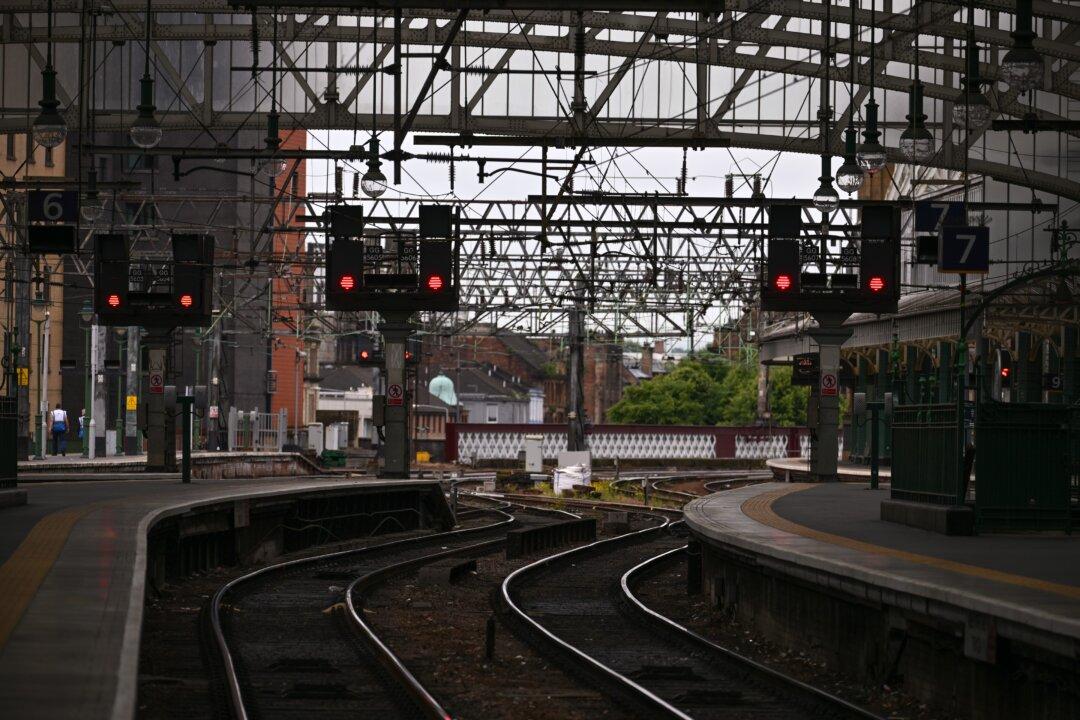British business groups have warned that the ongoing rail strikes will cause “incredible” damage to the UK economy as firms brace themselves for serious disruption.
The Rail, Maritime, and Transport Workers’ union (RMT) has started a three-day nationwide industrial action. It said it wants to “shut down” the country’s railway network in what union leaders say will amount to the “biggest rail strike in modern history.”





